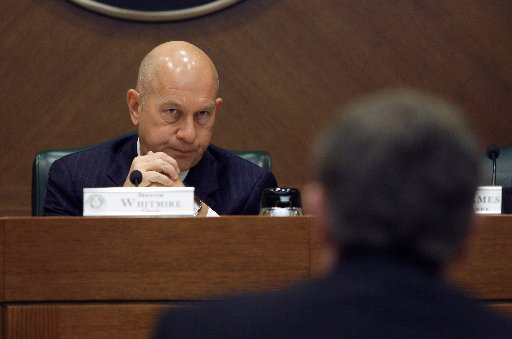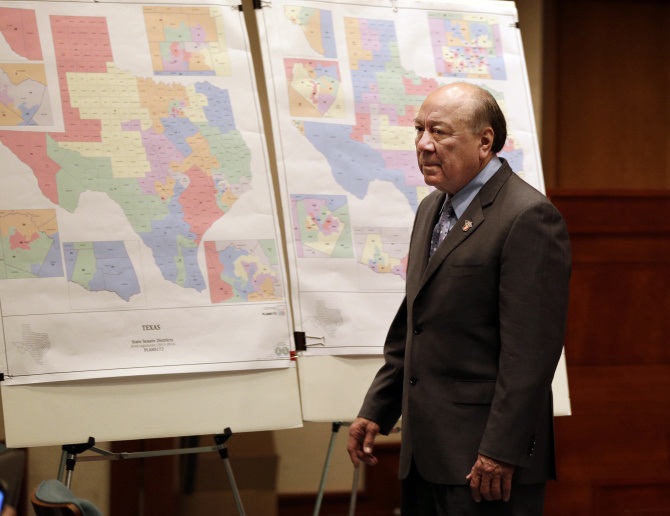Update at 4:00 p.m.: Checked tape, made minor changes to Whitmire’s and Nelson’s quotes.
Original item at 11:29 a.m.: The Texas Senate has begun its expected debate over whether to abandon a rule that for many decades has protected partisan, geographic and racial-ethnic minorities.
At a briefing on taxes for new Senate budget writers Wednesday, the chamber’s longest-serving member, Houston Democrat John Whitmire, launched a wry if somewhat backhanded defense of the “two-thirds rule.”
It can protect from attack things highly valued by rural senators, such as an exemption of agricultural equipment from the sales tax, Whitmire said at a hearing of the Senate Finance Committee.
The rule requires two-thirds of senators to agree before a bill can be taken up on the Senate floor.
Earlier this year, GOP lieutenant governor candidate Dan Patrick promised to reduce the influence of Democratic senators by weakening the rule and reducing the number of committees they chair. Patrick is a Houston senator.
On Wednesday, Whitmire interrupted a presentation by the comptroller’s office to discuss the sales-tax agricultural exemption.
He called it the “largest, broadest exemption we have.” Whitmire said urban tradesmen could view it as unfair, given they pay tax when they buy vehicles and equipment needed in their work. But the ag exemption has worked well, he said.
Then came the caveat.
“To preserve it, we need to make sure our rural members have a place at the table,” Whitmire said.
Sen. Robert Nichols, R-Jacksonville, said the Legislature tightened administration of the ag exemption in recent years. Beneficiaries have to attest they are engaged in food and fiber production, he said.
Whitmire, though, said that in the next revenue crunch, it and all other exemptions could be reviewed. The state may again face “challenges to find sufficient revenue,” putting the ag exemption at risk, he warned.
“The rural members should be mindful that the Senate rules currently allow them to block any consideration of repealing that,” he said.
Sen. Royce West, D-Dallas, interjected, “You talking about the two-thirds rule?”
Whitmire replied, “That would probably be the No. 1 thing that would come to my mind.”
A few minutes later, members of the panel began raising questions about the regressive effects of higher sales tax. Democrats mentioned Patrick’s proposal to decrease local school property taxes, perhaps by adding a penny or two to the state’s 6-1/4-cent sales tax.
Finance Committee Chairwoman Jane Nelson, R-Flower Mound, quickly cut them off, though.
She noted that higher sales tax is just one way to pay for property tax relief.
“Many of us would like to reduce property taxes,” Nelson said. “We’re going to look at a lot of different possibilities.”













